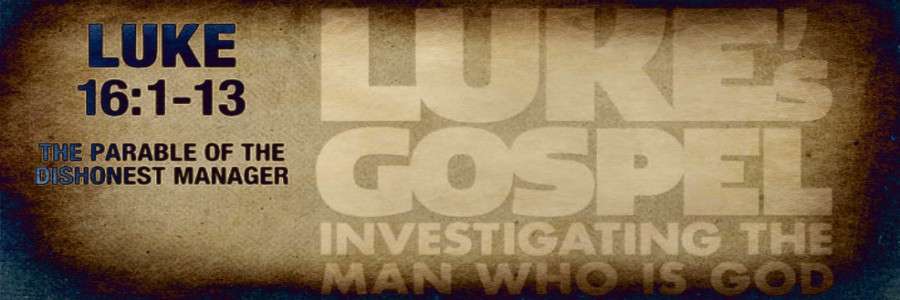
The Parable of the Dishonest Manager – Luke 16:1-13 Rightly Divided
Question: How should Luke 16:1-13 be understood” What kind of friendship is being taught here?
Answer: Value mammon highly and use your mammon for worldly ends if your goals and hopes consist of things in this world. But if you want to be in God’s favor, be counted faithful in God’s eyes, and be fit for eternity with God you need to abstain from covetousness, shun unrighteous gains, and use the money you do have to advance God’s kingdom and for things which reflect heaven’s values (like ministering to the poor- see the next story Jesus told in Luke 16:19-31).
The lessons from the story in Luke 16:1-9 are summed up in verses 10 to 13 and verse 15. Then in verses 16 to 31 Jesus is addressing what the Pharisees were likely contending with Him over in verse 14. The Pharisees were saying that the Law of Moses permitted their unrighteous divorces and their ungodly pursuit of riches. So in verses 16 to 18 Jesus is saying that the Law of Moses always forbid men from putting away their wives for any reason (it only permitted putting away for the narrow reason addressed in Deut. 24:1-4) and is emphasizing that the kingdom of God being preached does not in any way change the Law of Moses.
Then in verses 19 to 31 the ultimate point of the story of the Rich man and Lazarus here is that the Law of Moses and the Prophets (what we know as the Old Testament which was the whole Bible at this time) taught that covetousness is a sin and warned of great wrath for those who lived in luxury and despised the poor. That was a sharp rebuke to the Pharisees’ justification of themselves and proof that the Law of Moses which they claimed to trust in actually condemned them.
All in Luke chapter 16 is illustrating the great summary given in verse 13: ” No servant can serve two masters: for either he will hate the one, and love the other; or else he will hold to the one, and despise the other. Ye cannot serve God and mammon.”
Luke 16:1-13 “And he said also unto his disciples, There was a certain rich man, which had a steward; and the same was accused unto him that he had wasted his goods. 2 And he called him, and said unto him, How is it that I hear this of thee? give an account of thy stewardship; for thou mayest be no longer steward. 3 Then the steward said within himself, What shall I do? for my lord taketh away from me the stewardship: I cannot dig; to beg I am ashamed.4 I am resolved what to do, that, when I am put out of the stewardship, they may receive me into their houses. 5 So he called every one of his lord’s debtors unto him, and said unto the first, How much owest thou unto my lord? 6 And he said, An hundred measures of oil. And he said unto him, Take thy bill, and sit down quickly, and write fifty. 7 Then said he to another, And how much owest thou? And he said, An hundred measures of wheat. And he said unto him, Take thy bill, and write fourscore. 8 And the lord commended the unjust steward, because he had done wisely: for the children of this world are in their generation wiser than the children of light. 9 And I say unto you, Make to yourselves friends of the mammon of unrighteousness; that, when ye fail, they may receive you into everlasting habitations. 10 He that is faithful in that which is least is faithful also in much: and he that is unjust in the least is unjust also in much. 11 If therefore ye have not been faithful in the unrighteous mammon, who will commit to your trust the true riches? 12 And if ye have not been faithful in that which is another man’s, who shall give you that which is your own? 13 No servant can serve two masters: for either he will hate the one, and love the other; or else he will hold to the one, and despise the other. Ye cannot serve God and mammon.”
